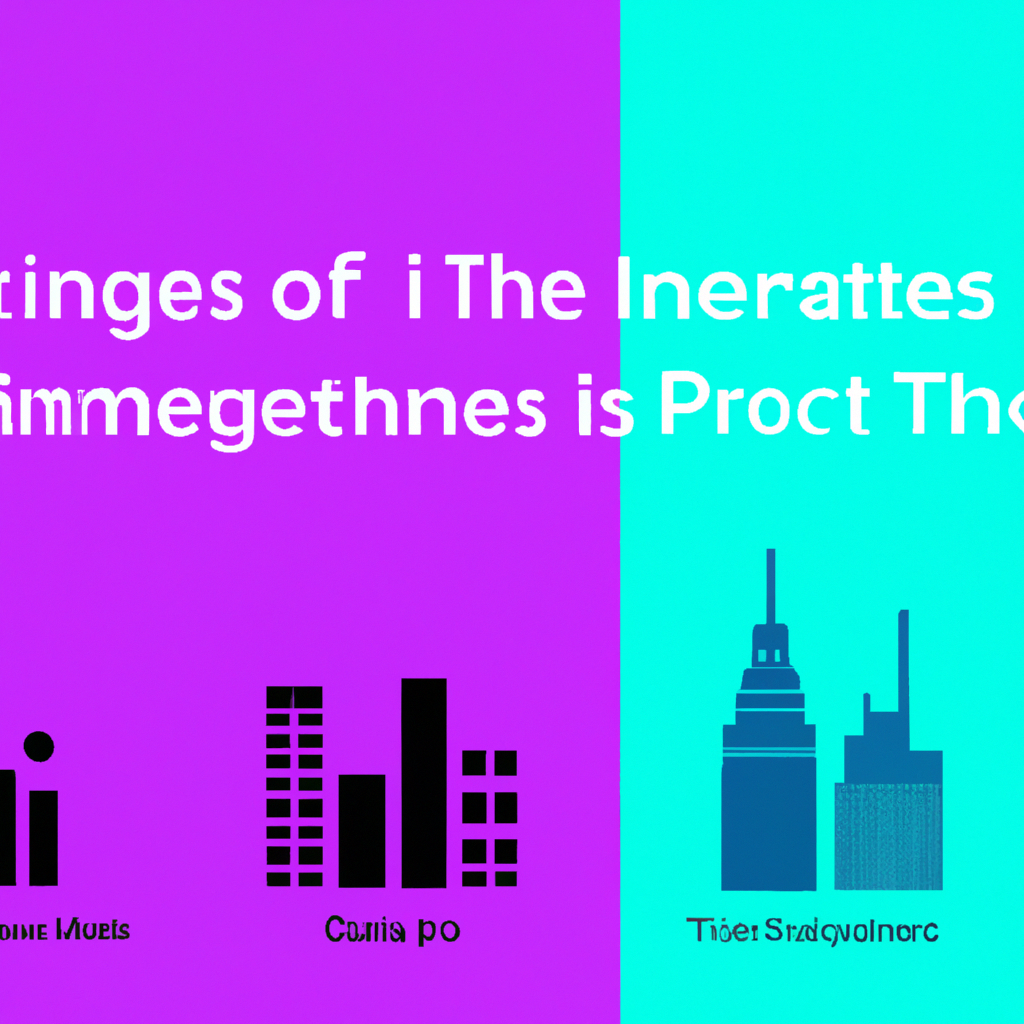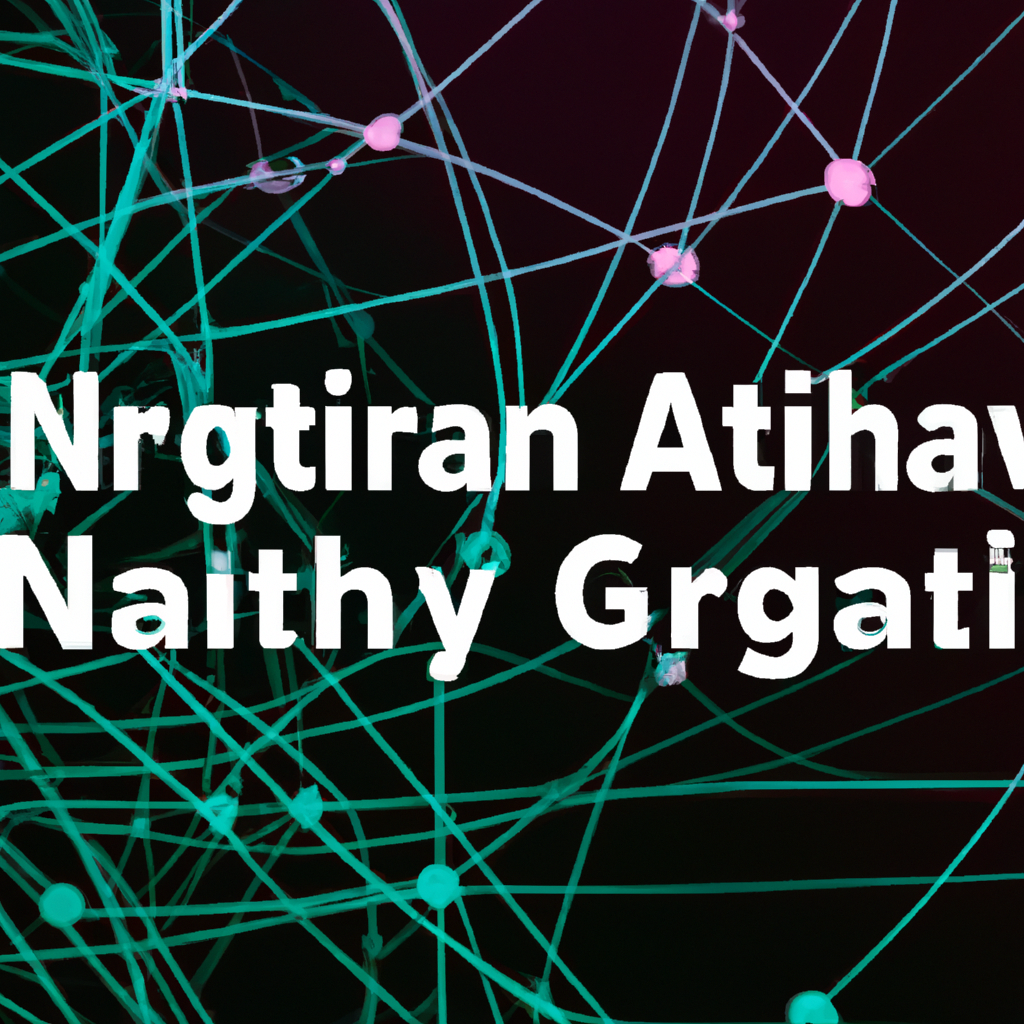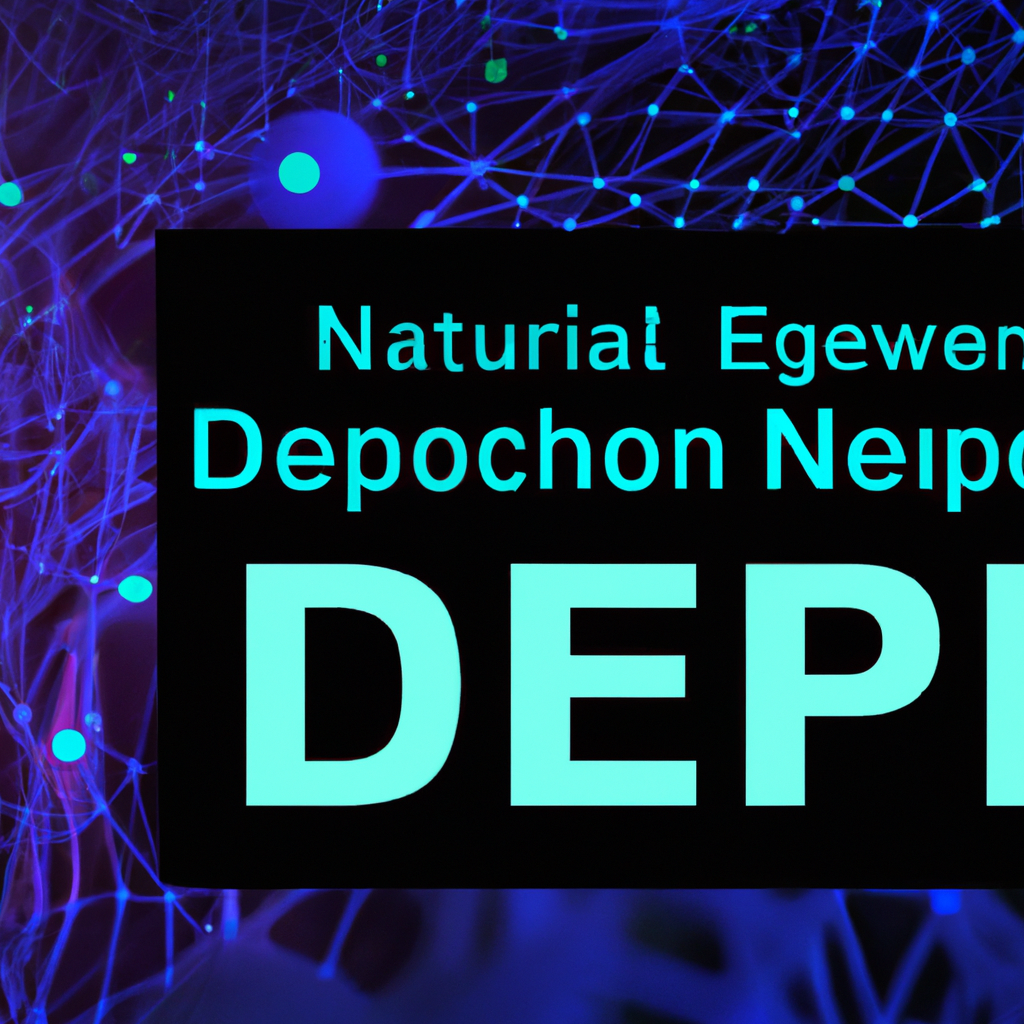Exploring the Applications of Data Mining in Customer Segmentation
Introduction
In today’s digitally-driven world, businesses are faced with an overwhelming amount of customer data. With the advent of the internet and social media platforms, companies have access to a vast array of information about their customers, including their preferences, behaviors, and demographics. However, with such an abundance of data, it becomes increasingly difficult for businesses to make sense of it all and identify patterns that can help improve their marketing strategies. This is where data mining comes into play.
Read more...Exploring the Potential of Quantum Machine Learning in Pattern Recognition
Introduction
The field of machine learning has witnessed significant advancements in recent years, with algorithms becoming increasingly sophisticated and capable of solving complex problems. One of the latest and most exciting developments in this field is the intersection of quantum computing and machine learning, known as quantum machine learning (QML). By harnessing the power of quantum mechanics, QML has the potential to revolutionize pattern recognition tasks by offering exponential speedup and improved accuracy. This article aims to explore the potential of QML in pattern recognition and its implications for the future of computation and algorithms.
Read more...Exploring the Potential of Natural Language Processing in Text Summarization
Introduction
In the ever-expanding digital age, the amount of textual information available is growing exponentially. With the flood of information, it becomes increasingly challenging for individuals to absorb and comprehend the vast amounts of text. This has led to the emergence and importance of text summarization techniques. Natural Language Processing (NLP), a subfield of artificial intelligence and computational linguistics, has shown remarkable potential in automating the process of text summarization. This article aims to explore the possibilities and advancements of NLP in the field of text summarization, delving into both the classics and new trends in computation and algorithms.
Read more...The Role of Graph Theory in Network Analysis
Introduction:
In today’s interconnected world, the study of networks has gained significant importance. From social networks to transportation systems, understanding the complex relationships and interactions within these networks is crucial for various applications such as information dissemination, disease spread analysis, and recommendation systems. Graph theory, a branch of mathematics, provides a powerful framework for analyzing and modeling networks. In this article, we will explore the role of graph theory in network analysis, looking at both the new trends and the classics of computation and algorithms in this field.
Read more...Investigating the Efficiency of Genetic Algorithms in Job Scheduling
Abstract:
In recent years, job scheduling has become a critical problem in various domains, including manufacturing, telecommunications, and cloud computing. The complexity of this problem has led researchers to explore different optimization techniques, one of which is genetic algorithms. This article aims to investigate the efficiency of genetic algorithms in job scheduling by analyzing their performance in terms of solution quality and computational time. We present a comprehensive review of the literature, discussing the strengths and weaknesses of genetic algorithms in this context. Our findings suggest that genetic algorithms can provide efficient solutions for job scheduling problems, but their performance is highly dependent on various factors such as problem size, scheduling constraints, and the specific implementation of the genetic algorithm.
Read more...The Role of Blockchain Technology in Supply Chain Management
Introduction
In recent years, blockchain technology has emerged as a transformative force that has the potential to revolutionize various industries. Supply chain management, an integral part of any business, is no exception to this trend. Blockchain technology offers a decentralized and immutable ledger system that can enhance transparency, traceability, and security in supply chains. This article explores the role of blockchain technology in supply chain management, discussing its benefits, challenges, and potential applications.
Read more...The Impact of Big Data Analytics in Business Intelligence
Introduction
In today’s data-driven world, businesses are constantly collecting, storing, and analyzing vast amounts of information. This data explosion has given rise to the field of big data analytics, which aims to extract valuable insights and knowledge from these massive datasets. One area where big data analytics is having a profound impact is in business intelligence. In this article, we will explore the significance of big data analytics in business intelligence, its benefits, challenges, and the future trends in this field.
Read more...Investigating the Impact of Internet of Things on Smart Cities
Abstract:
The Internet of Things (IoT) has emerged as a transformative technology that connects various objects and devices in the physical world to the digital realm. With the rapid growth of IoT, smart cities have become a prominent application domain. This article aims to investigate the impact of IoT on smart cities, focusing on the benefits, challenges, and potential future developments. Through a comprehensive analysis of existing literature and case studies, this article provides an academic understanding of the role of IoT in shaping the cities of the future.
Read more...Exploring the Applications of Genetic Programming in Machine Learning
Introduction
Machine learning has emerged as a powerful tool in solving complex problems and making predictions based on large datasets. Traditionally, machine learning algorithms were designed by human experts who would carefully craft the rules and parameters based on their domain knowledge. However, this process can be time-consuming and may not always result in the most optimal solution. Genetic programming, a subfield of evolutionary computation, offers an alternative approach where the machine learning algorithms can evolve and adapt on their own, mimicking the process of natural selection. In this article, we will explore the applications of genetic programming in machine learning and discuss its advantages and challenges.
Read more...Analyzing the Efficiency of Graph Algorithms in Network Analysis
Introduction
Graph algorithms have become an integral part of network analysis in various domains, such as social networks, transportation systems, and communication networks. These algorithms play a crucial role in extracting valuable insights from complex networks, enabling researchers and practitioners to understand the underlying structures and dynamics. However, with the increasing complexity and scale of real-world networks, the efficiency of these graph algorithms becomes a critical concern. In this article, we will delve into the analysis of graph algorithms’ efficiency in network analysis, exploring both the new trends and the classics of computation and algorithms.
Read more...Understanding the Principles of Cryptography in Data Security
Introduction
In today’s increasingly interconnected and digital world, data security has become a paramount concern for individuals, organizations, and governments alike. The advent of the Internet and the rapid growth of digital communication have brought with them numerous benefits, but they have also exposed vulnerabilities in the transmission and storage of sensitive information. To counter these threats, cryptography has emerged as an indispensable tool for ensuring data security. This article aims to provide an academic overview of the principles of cryptography, highlighting its role in safeguarding information and exploring both the new trends and the classics of computation and algorithms in this field.
Read more...The Impact of Cybersecurity Threats on the Internet of Things
Introduction
In recent years, the Internet of Things (IoT) has emerged as a significant technological advancement with the potential to revolutionize various aspects of our lives. The IoT refers to a vast network of interconnected devices that can communicate and share data with each other over the internet. These devices encompass a wide range, including but not limited to, household appliances, wearable devices, industrial machinery, and even vehicles. While the IoT offers numerous benefits and opportunities, it also presents significant challenges, particularly in terms of cybersecurity. This article aims to explore the impact of cybersecurity threats on the Internet of Things and discuss the measures that can be taken to mitigate these risks.
Read more...The Role of Data Privacy in Big Data Analytics
Introduction
In recent years, the rise of big data analytics has revolutionized the way organizations across various sectors make decisions and gain insights. Big data analytics refers to the process of extracting valuable information from large and complex datasets. However, with the increasing use of big data comes the need to address concerns surrounding data privacy. As massive amounts of data are collected, stored, and analyzed, the protection of individuals’ privacy becomes a critical issue. This article explores the role of data privacy in the context of big data analytics and discusses the challenges and potential solutions in ensuring the privacy of individuals’ data.
Read more...The Role of Data Privacy in the Era of Big Data
Introduction
In the digital age, the proliferation of data has revolutionized numerous aspects of our lives. The advent of big data, characterized by massive volumes, high velocity, and wide variety, has opened up new possibilities for businesses, governments, and individuals alike. However, the collection, storage, and analysis of such vast amounts of data raise significant concerns about data privacy. This article explores the role of data privacy in the era of big data, discussing both the new trends and the classics of computation and algorithms, always in an academic language.
Read more...Exploring the Applications of Natural Language Processing in Information Retrieval
Introduction:
In recent years, the field of Natural Language Processing (NLP) has gained significant attention in the realm of information retrieval. NLP, a subfield of artificial intelligence and computational linguistics, focuses on the interaction between computers and human language. It aims to enable machines to understand, interpret, and generate human language, ultimately facilitating effective communication between humans and technology. In this article, we delve into the applications of NLP in information retrieval, discussing both the new trends and the classics of computation and algorithms.
Read more...Understanding the Principles of Natural Language Processing in Speech Recognition
Introduction
In recent years, speech recognition technology has witnessed significant advancements, revolutionizing the way we interact with machines. Natural Language Processing (NLP) lies at the core of these advancements, enabling machines to understand and interpret human speech. This article will delve into the principles of NLP in speech recognition, exploring both the classic techniques and emerging trends in the field.
Read more...Investigating the Efficiency of Parallel Algorithms in Big Data Processing
Introduction
With the advent of big data, the need for efficient processing techniques has become paramount. Parallel algorithms have emerged as a powerful solution to tackle the challenges posed by the ever-increasing volume, velocity, and variety of data. In this article, we will delve into the world of parallel algorithms and explore their efficiency in big data processing. We will discuss the basics of parallel computing, the key characteristics of parallel algorithms, and the factors that impact their efficiency. Furthermore, we will explore some classic parallel algorithms and investigate their performance in handling big data.
Read more...Exploring the Applications of Data Mining in Customer Relationship Management
Abstract:
Customer Relationship Management (CRM) is a crucial aspect of business operations, and in the digital age, data mining techniques have revolutionized the way organizations manage and analyze customer information. This article explores the applications of data mining in CRM, highlighting its significance in optimizing customer interactions, improving sales and marketing strategies, and enhancing overall customer satisfaction. By leveraging data mining algorithms, businesses can uncover valuable insights from vast amounts of customer data, leading to informed decision-making and improved customer relationships. This article examines the classic and emerging trends in data mining algorithms and their potential impact on CRM.
Read more...Investigating the Efficiency of Data Mining Algorithms in Big Data Analytics
Abstract:
With the advent of big data, organizations are facing unprecedented challenges in extracting valuable insights from massive datasets. Data mining algorithms play a vital role in analyzing such data, enabling organizations to make informed decisions and gain a competitive edge. This article aims to investigate the efficiency of data mining algorithms in big data analytics, focusing on their ability to handle the volume, variety, and velocity of data. We explore both the classic and emerging algorithms used in data mining, discussing their strengths, limitations, and potential avenues for future research.
Read more...Exploring the Applications of Machine Learning in Natural Language Processing
Introduction
Natural Language Processing (NLP) is a rapidly growing field within the realm of artificial intelligence and computer science. It focuses on the interaction between computers and human language, enabling machines to understand, interpret, and generate natural language. In recent years, machine learning techniques have revolutionized the field of NLP, enabling unprecedented advancements in various applications. This article will explore the applications of machine learning in NLP, highlighting both new trends and the classics of computation and algorithms.
Read more...Unraveling the Mathematical Foundations of Machine Learning Algorithms
Introduction
Machine learning has emerged as a powerful tool in the field of computer science, enabling computers to learn and make decisions without being explicitly programmed. This transformative technology has found applications in various domains, ranging from image recognition to natural language processing. Behind the success of machine learning algorithms lie intricate mathematical foundations that provide the framework for learning and prediction. In this article, we will delve into the mathematical underpinnings of machine learning algorithms, focusing on the key concepts and techniques that drive their effectiveness.
Read more...Exploring the Advancements in Quantum Computing
Introduction
In recent years, the field of computing has witnessed remarkable advancements through the emergence of quantum computing. Quantum computing harnesses the fundamental principles of quantum mechanics to revolutionize traditional computing paradigms. This article aims to delve into the latest trends and advancements in quantum computing, while also highlighting the classic algorithms and concepts that form the foundation of this exciting field.
Read more...Understanding the Principles of Natural Language Processing in Text Summarization
Introduction
In the era of information overload and vast amounts of textual data being generated every second, the need for efficient text summarization techniques has become paramount. Text summarization is the process of condensing a large body of text into a concise summary while preserving the key information and main ideas. Natural Language Processing (NLP) plays a crucial role in achieving this task by leveraging computational algorithms and linguistic principles. This article aims to delve into the principles of NLP in text summarization, exploring both the new trends and the classics in this field.
Read more...Investigating the Efficiency of Optimization Algorithms in Supply Chain Management
Introduction
Supply chain management plays a crucial role in the success of modern businesses by ensuring the efficient flow of goods and services from suppliers to customers. In this era of globalization and intense competition, organizations strive to optimize their supply chain operations to achieve cost reduction, improve customer satisfaction, and enhance overall performance. To achieve these goals, optimization algorithms have emerged as powerful tools that aid in decision-making processes and drive efficiency in supply chain management. This article aims to investigate the efficiency of optimization algorithms in supply chain management and explore their impact on various aspects of the supply chain.
Read more...Investigating the Efficiency of Parallel Computing in Scientific Simulations
Introduction:
In the ever-evolving field of scientific simulations, parallel computing has emerged as a critical tool to enhance the efficiency and effectiveness of these complex computational models. By distributing computational tasks across multiple processors or computing nodes, parallel computing enables simulations to be executed faster than traditional serial computing methods. This article aims to explore the efficiency of parallel computing in scientific simulations, discussing its benefits, challenges, and potential future developments.
Read more...Investigating the Efficiency of Parallel Algorithms in Distributed Systems
Abstract: In recent years, distributed systems have gained significant attention due to their ability to handle large-scale data processing and analysis. Parallel algorithms play a crucial role in improving the efficiency of distributed systems by dividing the workload among multiple processors. This article aims to investigate the efficiency of parallel algorithms in distributed systems and explore the latest trends and classic approaches in the field of computation and algorithms. By analyzing various case studies and experiments, we highlight the benefits and challenges of utilizing parallel algorithms in distributed systems and provide insights into future research directions.
Read more...Understanding the Principles of Natural Computing in Solving Optimization Problems
Introduction:
The field of computer science has witnessed significant advancements in recent years, particularly in the area of optimization problems. These problems arise in various domains, such as logistics, telecommunications, and engineering, where finding the optimal solution can greatly enhance efficiency and performance. One promising approach to solving optimization problems is through the principles of natural computing. Natural computing draws inspiration from natural processes, such as biological evolution and the behavior of ant colonies, to develop novel algorithms that can efficiently tackle complex optimization problems. In this article, we will explore the principles of natural computing and how they can be applied to solve optimization problems.
Read more...Analyzing the Efficiency of Data Structures in Memory Management
Introduction
In the world of computer science, data structures play a pivotal role in memory management. Efficient memory management is crucial for optimizing performance and ensuring the smooth execution of algorithms. As technology continues to advance, it becomes imperative to analyze the efficiency of different data structures in memory management. This article aims to explore the classic and new trends in computation and algorithms, focusing on the efficiency of various data structures in memory management.
Read more...Investigating the Efficiency of Genetic Algorithms in Evolving Neural Networks
Title:
Abstract:
Genetic algorithms (GAs) have gained significant attention in the field of artificial intelligence due to their ability to solve complex optimization problems. One intriguing application of GAs is their potential in evolving neural networks, which can lead to the development of highly efficient and adaptable systems. In this article, we delve into the efficiency of genetic algorithms in the evolution of neural networks, exploring their strengths, limitations, and future prospects.
Read more...Understanding the Principles of Machine Learning in Recommender Systems
Introduction
In today’s digital age, the amount of information available to users is overwhelming. Whether it’s the vast array of products on an e-commerce platform or the multitude of movies and TV shows on a streaming service, users often find themselves needing assistance to navigate through this sea of options. This is where recommender systems come into play. Recommender systems, powered by machine learning algorithms, have become an integral part of our online experiences. In this article, we will delve into the principles of machine learning in recommender systems, exploring both the new trends and the classics of computation and algorithms.
Read more...Understanding the Principles of Deep Learning in Neural Networks
Introduction
In recent years, deep learning has emerged as a powerful technique in the field of artificial intelligence (AI). It has revolutionized various domains, ranging from computer vision to natural language processing. Deep learning in neural networks has shown remarkable performance in solving complex problems that were previously considered challenging. This article aims to provide an in-depth understanding of the principles behind deep learning in neural networks.
Read more...Investigating the Efficiency of Encryption Algorithms in Data Security
Introduction
In today’s digital age, data security has become a paramount concern for individuals, businesses, and governments alike. With the exponential growth of data and the increasing sophistication of cyber threats, it has become imperative to protect sensitive information from unauthorized access. Encryption algorithms have emerged as a fundamental tool for ensuring the confidentiality and integrity of data. This article aims to investigate the efficiency of encryption algorithms in data security, exploring both the new trends and the classics of computation and algorithms.
Read more...Exploring the Applications of Computer Vision in Augmented Reality
Introduction
In recent years, the integration of computer vision and augmented reality has emerged as a powerful combination in various fields, ranging from entertainment and gaming to healthcare and industrial applications. Computer vision, a subfield of artificial intelligence, enables machines to extract meaningful information from digital images or videos. Augmented reality, on the other hand, overlays digital content onto the real world, enhancing our perception and interaction with the environment. This article aims to delve into the applications of computer vision in augmented reality and shed light on the advancements and challenges in this exciting intersection of technologies.
Read more...Understanding the Principles of Compiler Design and Optimization
Introduction
In the world of computer science, compilers play a crucial role in translating high-level programming languages into machine code that can be executed by a computer. Compiler design and optimization are fundamental areas of study that have evolved over the years, resulting in improved efficiency and performance of computer programs. This article aims to provide a comprehensive understanding of the principles behind compiler design and optimization, exploring both the new trends and the classics of computation and algorithms.
Read more...Understanding the Principles of Parallel Computing in Computational Physics
Introduction
In the field of computational physics, parallel computing has emerged as a powerful tool for solving complex problems that require significant computational resources. With the exponential growth in computing power and the increasing demand for accurate simulations, parallel computing has become an essential aspect of scientific research. This article aims to provide an in-depth understanding of the principles of parallel computing in computational physics, exploring both the new trends and the classics of computation and algorithms.
Read more...Exploring the Field of Computer Graphics: From Rendering to Animation
Introduction
Computer graphics is a rapidly evolving field that has revolutionized the way we perceive and interact with digital media. From stunning visual effects in movies to realistic video games, computer graphics has become an integral part of our daily lives. In this article, we will delve into the world of computer graphics, focusing specifically on rendering and animation. We will explore the historical development of these fields, the current trends, and the classic algorithms that have shaped the way we create and manipulate digital imagery.
Read more...Exploring the Applications of Computer Vision in Medical Imaging
Introduction
In recent years, there has been a significant advancement in the field of computer vision, which has revolutionized various industries, including healthcare. Computer vision, a subfield of artificial intelligence, focuses on enabling machines to interpret and understand visual data. In the realm of medical imaging, computer vision techniques have proven to be invaluable in enhancing the accuracy and efficiency of diagnosis, treatment, and research. This article aims to explore the applications of computer vision in medical imaging, highlighting both the new trends and the classics of computation and algorithms.
Read more...Investigating the Efficiency of Search Algorithms in Large Datasets
Introduction
With the exponential growth of data in the digital age, it has become increasingly important to develop efficient search algorithms to process and retrieve information from large datasets. In the field of computer science, search algorithms play a pivotal role in various applications, ranging from database management systems to web search engines. This article aims to investigate the efficiency of different search algorithms in handling large datasets, highlighting both the classics and new trends in computation and algorithms.
Read more...Investigating the Efficiency of Graph Algorithms in Recommendation Systems
Abstract:
Recommendation systems have become an integral part of our daily lives, helping us discover new products, movies, or music that align with our interests. These systems rely heavily on algorithms to provide accurate and personalized recommendations. Graph algorithms, in particular, have shown great promise in improving the efficiency and effectiveness of recommendation systems. This article explores the efficiency of various graph algorithms commonly used in recommendation systems, highlighting their strengths, limitations, and potential improvements.
Read more...Exploring the Applications of Natural Language Processing in Virtual Assistants
Introduction
In recent years, virtual assistants have become an integral part of our daily lives. From Siri to Amazon’s Alexa and Google Assistant, these intelligent agents have revolutionized the way we interact with technology. Behind the scenes, one of the key technologies driving the success of these virtual assistants is Natural Language Processing (NLP). NLP enables machines to understand and interpret human language, making it possible for virtual assistants to respond to our queries, carry out tasks, and even engage in meaningful conversations. In this article, we will delve into the applications of NLP in virtual assistants, exploring both the current trends and the classic algorithms that underpin this field of study.
Read more...Understanding the Principles of Neural Networks in Deep Learning
Introduction:
In recent years, deep learning has emerged as a revolutionary technology in the field of artificial intelligence and has shown remarkable success in various applications such as image and speech recognition, natural language processing, and autonomous driving. At the heart of deep learning lies the powerful computational model known as neural networks. In this article, we will delve into the principles of neural networks, focusing on their structure, training algorithms, and the underlying mathematics that make them so effective in solving complex problems.
Read more...Understanding the Principles of Reinforcement Learning in Game AI
Introduction
In recent years, the field of artificial intelligence (AI) has witnessed remarkable advancements, particularly in the area of game playing. Reinforcement learning, a subfield of AI, has emerged as a powerful technique for training agents to perform complex tasks, such as playing games, by learning from their interactions with the environment. This article aims to explore the principles of reinforcement learning in the context of game AI, highlighting both the new trends and the classics of computation and algorithms in this domain.
Read more...The Role of Machine Learning in Recommender Systems
Introduction
In recent years, recommender systems have become an integral part of our daily lives. From online shopping platforms to streaming services, these systems play a crucial role in helping users discover new products, movies, music, and more. With the exponential growth of available data and the increasing complexity of user preferences, traditional rule-based recommender systems have faced limitations in providing accurate and personalized recommendations. This has led to the emergence of machine learning techniques in the field of recommender systems. In this article, we will explore the role of machine learning in enhancing the effectiveness and efficiency of recommender systems.
Read more...Exploring the Potential of Augmented Reality in Virtual Design and Simulation
Introduction
In recent years, augmented reality (AR) has emerged as a promising technology with the potential to revolutionize various industries. One such sector that stands to benefit greatly from AR is virtual design and simulation. By merging the physical and digital worlds, AR can enhance the design process, improve visualization, and provide immersive simulation experiences. This article delves into the potential of augmented reality in virtual design and simulation, highlighting both its new trends and classic applications in computation and algorithms.
Read more...Understanding the Principles of Data Science and Predictive Analytics
Introduction
In the age of information, the ability to extract meaningful insights from vast amounts of data has become crucial in various fields, ranging from finance and healthcare to marketing and social sciences. With the advent of data science and predictive analytics, organizations are now equipped with powerful tools to make informed decisions and gain a competitive edge. In this article, we will delve into the principles underlying data science and predictive analytics, exploring the algorithms and techniques that drive these fields forward.
Read more...Exploring the Potential of Quantum Machine Learning
Introduction
In recent years, the field of machine learning has witnessed significant advancements, revolutionizing various industries and leading to the development of intelligent systems capable of performing complex tasks. However, traditional machine learning algorithms face limitations when it comes to handling vast amounts of data and solving problems with exponential complexities. This has led researchers to explore alternative approaches, one of which is quantum machine learning. In this article, we will delve into the potential of quantum machine learning, examining its fundamental principles, current research trends, and the challenges it presents.
Read more...Exploring the Potential of Quantum Computing in Optimization Problems
Introduction
Optimization problems are ubiquitous in various fields, ranging from logistics and finance to engineering and biology. The ability to efficiently solve these problems can have a significant impact on industries and scientific advancements. Traditional classical computing has made remarkable progress in solving optimization problems, but it often encounters limitations when faced with complex and large-scale scenarios. In recent years, quantum computing has emerged as a promising alternative, offering the potential to revolutionize optimization by harnessing the power of quantum mechanics. This article explores the potential of quantum computing in solving optimization problems and discusses its implications for the future.
Read more...Understanding the Principles of Compiler Design and Optimization
Introduction:
In the world of computer science, compilers play a crucial role in translating high-level programming languages into machine code that can be executed by a computer. Compiler design and optimization are fundamental concepts that are essential to the efficiency and performance of software systems. This article aims to provide a comprehensive overview of the principles behind compiler design and optimization, shedding light on both the new trends and the classics in this field.
Read more...Investigating the Efficiency of Search Algorithms in Web Information Retrieval
Introduction
With the exponential growth of data on the World Wide Web, efficient search algorithms have become crucial for effective web information retrieval. Search algorithms play a pivotal role in determining the speed and accuracy of search results, impacting user experience and satisfaction. This article aims to investigate the efficiency of search algorithms in web information retrieval, exploring both the classic and new trends in computation and algorithms.
Read more...Analyzing the Efficiency of Graph Algorithms in Social Network Analysis
Introduction
In today’s digital age, social networks have become an integral part of our lives. People are constantly connecting, sharing information, and forming relationships through various social media platforms. This vast interconnectedness has given rise to the field of social network analysis, which aims to understand the structure and dynamics of these networks. Graph algorithms play a crucial role in analyzing social networks, as they provide valuable insights into the relationships and interactions between individuals. However, the efficiency of these algorithms is of paramount importance, as the size and complexity of social networks continue to grow exponentially. This article aims to explore the efficiency of graph algorithms in social network analysis, both in terms of their computational complexity and their practical performance.
Read more...Exploring the Potential of Swarm Intelligence in Optimization Problems
Abstract:
Optimization problems have long been a focal point in various domains, including computer science, operations research, and engineering. Traditional optimization techniques often struggle to find the global optima efficiently, especially in complex and dynamic problem spaces. Swarm Intelligence (SI) is a relatively new and promising approach that draws inspiration from social behaviors observed in nature. This article explores the potential of SI in solving optimization problems, discussing its underlying concepts, algorithms, and applications. Additionally, it highlights the advantages and challenges of using SI, comparing it with traditional optimization methods.
Read more...Investigating the Efficiency of Evolutionary Algorithms in Optimization Problems
Introduction:
In the field of computer science, optimization problems are ubiquitous and arise in various domains such as engineering, finance, and logistics. The goal is to find the best solution among a set of possible alternatives, typically with constraints. Traditional optimization techniques, such as mathematical programming, have been extensively studied and applied. However, these methods often struggle with complex real-world problems due to their reliance on mathematical models and assumptions. In recent years, evolutionary algorithms (EAs) have gained significant attention for their ability to address optimization problems more efficiently. This article aims to investigate the efficiency of evolutionary algorithms in optimization problems, exploring their advantages, limitations, and potential future developments.
Read more...Investigating the Efficiency of Graph Algorithms in Route Optimization
1. Introduction
In recent years, the field of route optimization has gained significant attention, especially with the increasing need for efficient transportation and logistics systems. Graph algorithms play a crucial role in solving route optimization problems by modeling the network of roads, paths, or connections. This article aims to investigate the efficiency of graph algorithms in solving route optimization problems and explore both the new trends and classics in computation and algorithms in this domain.
Read more...The Role of Reinforcement Learning in Game Theory
Introduction
Game theory is a field of study that deals with strategic decision-making in situations where the outcome of an individual’s choice depends on the choices of others. It has applications in various domains such as economics, political science, biology, and computer science. With the advent of advanced computing techniques, researchers have been able to apply reinforcement learning algorithms to game theory, enhancing our understanding of strategic interactions and enabling us to make better predictions about the behavior of rational agents. This article explores the role of reinforcement learning in game theory, focusing on its impact on both classical and new trends in computation and algorithms.
Read more...Understanding the Principles of Deep Learning in Natural Language Processing
Introduction
In recent years, the field of natural language processing (NLP) has witnessed significant advancements, thanks to the emergence of deep learning techniques. Deep learning has revolutionized various domains, including computer vision, speech recognition, and NLP. In this article, we aim to explore the principles of deep learning in NLP and its applications. We will delve into the key concepts and techniques that enable computers to understand and process human language in a meaningful way.
Read more...The Role of Machine Learning in Predictive Analytics
Introduction
Predictive analytics has become an integral part of decision-making processes across various industries. By leveraging historical data, statistical algorithms, and machine learning techniques, organizations can gain valuable insights and make informed predictions about future events or behaviors. Machine learning, in particular, has emerged as a powerful tool in predictive analytics, enabling sophisticated models to learn from data and improve their performance over time. In this article, we will explore the role of machine learning in predictive analytics, discussing its impact on both new trends and classic algorithms in computation.
Read more...Exploring the Potential of Swarm Intelligence in Optimization Problems
Abstract: As the field of computer science continues to evolve, researchers and practitioners alike are constantly seeking innovative approaches to tackle complex optimization problems. One such approach that has gained significant attention in recent years is swarm intelligence. This article aims to explore the potential of swarm intelligence in optimization problems, delving into both the new trends and the classics of computation and algorithms. By examining the underlying principles and techniques employed by swarm intelligence algorithms, we can gain valuable insights into their applicability and potential impact in various domains.
Read more...Exploring the Potential of Natural Language Processing in Language Translation
Introduction
Language translation has always been a challenging task for humans. The ability to accurately and efficiently translate one language to another has long been a pursuit of linguists, scientists, and scholars. With the advent of computers and the development of computational linguistics, the field of language translation has seen significant advancements. In recent years, natural language processing (NLP) has emerged as a powerful tool for tackling the complexities of language translation. This article aims to explore the potential of NLP in language translation, highlighting both the new trends and the classics of computation and algorithms in this domain.
Read more...Investigating the Efficiency of Data Compression Algorithms in Text Processing
Abstract:
In the realm of information technology, the efficient processing and storage of data is paramount. With the exponential growth of digital content, the need for effective data compression algorithms has become increasingly significant. This article aims to explore the efficiency of data compression algorithms in text processing, focusing on both classical and new trends in computation and algorithms. We will delve into the theoretical foundations of data compression, discuss various algorithms, and analyze their performance in terms of compression ratios and processing times. By understanding the strengths and limitations of different techniques, we can make informed decisions when choosing the most suitable algorithms for specific text processing tasks.
Read more...Understanding the Principles of Quantum Computing in Cryptography
Introduction
In the rapidly evolving field of computer science, quantum computing has emerged as a potential game-changer. With its ability to harness the power of quantum mechanics, quantum computing has the potential to solve complex problems with unprecedented speed. One area where quantum computing could have a profound impact is cryptography. In this article, we will explore the principles of quantum computing and its implications for the future of cryptography.
Read more...Analyzing the Efficiency of Graph Algorithms in Network Analysis
Introduction
In the ever-growing field of network analysis, graph algorithms play a vital role in understanding the intricate relationships and structures within complex networks. From social networks to transportation systems, graph algorithms provide us with the means to extract valuable insights from vast amounts of interconnected data. However, as network sizes continue to increase, the efficiency of these algorithms becomes a critical concern. This article aims to analyze the efficiency of graph algorithms in network analysis, exploring both the new trends and the classics of computation and algorithms.
Read more...The Role of Machine Learning in Recommender Systems
Introduction:
Recommender systems have become an integral part of our daily lives, assisting us in discovering new products, movies, music, and even friends on social media. These systems play a crucial role in personalizing our online experiences, making recommendations based on our preferences and behaviors. One of the key technologies driving the effectiveness of recommender systems is machine learning. In this article, we will explore the role of machine learning in recommender systems, discussing its impact on both the new trends and the classics of computation and algorithms.
Read more...Exploring the Applications of Machine Learning in Speech Recognition
Abstract:
Speech recognition has emerged as one of the most significant technological advancements in recent years, revolutionizing the way humans interact with computers. Machine learning, a subfield of artificial intelligence, has played a pivotal role in the advancement of speech recognition technology. This article explores the applications of machine learning in speech recognition, delving into the various techniques and algorithms employed in this domain. Additionally, we discuss the challenges and future prospects of machine learning in speech recognition.
Read more...The Impact of Virtual Reality in Immersive User Experiences
Introduction
In recent years, virtual reality (VR) has emerged as a groundbreaking technology that is revolutionizing the way we experience and interact with digital content. Through the use of specialized headsets and motion tracking devices, VR enables users to be fully immersed in virtual environments, providing a sense of presence and a heightened level of engagement. This article explores the impact of VR in immersive user experiences, examining both its new trends and its classics of computation and algorithms.
Read more...Understanding the Principles of Reinforcement Learning in Game AI
Introduction
In recent years, the field of artificial intelligence (AI) has witnessed significant advancements, particularly in the domain of game playing. Reinforcement learning (RL) has emerged as a powerful technique in training intelligent agents to excel in complex game environments. This article aims to provide a comprehensive understanding of the principles underlying reinforcement learning in game AI, focusing on its core components, algorithms, and its potential impact on the gaming industry.
Read more...The Evolution of Internet of Things: From Smart Homes to Smart Cities
Introduction
The Internet of Things (IoT) has revolutionized the way we interact with our surroundings, enabling seamless connectivity and automation. This network of interconnected devices has transformed not only our homes but also our cities, leading to the rise of smart homes and smart cities. In this article, we will explore the evolution of IoT, from its humble beginnings in smart homes to its expansion into the realm of smart cities.
Read more...Exploring the Field of Robotics: From Industrial Automation to Humanoid Robots
Introduction
Robotics has emerged as a revolutionary field at the intersection of computer science, engineering, and artificial intelligence. Over the years, it has transformed various industries, ranging from manufacturing to healthcare, and has captivated the imagination of researchers, engineers, and the general public alike. This article delves into the world of robotics, highlighting the new trends and the classics of computation and algorithms that have shaped this field, with a particular focus on the evolution from industrial automation to humanoid robots.
Read more...Investigating the Efficiency of Machine Learning Algorithms in Time Series Forecasting
Introduction:
Time series forecasting plays a crucial role in various domains, including finance, weather prediction, and sales forecasting. Traditionally, statistical methods such as ARIMA (AutoRegressive Integrated Moving Average) have been used for time series forecasting. However, with the advent of machine learning, there has been a significant shift towards utilizing algorithms like Support Vector Machines (SVM), Random Forests, and Recurrent Neural Networks (RNN) for more accurate and efficient predictions. This article aims to investigate the efficiency of these machine learning algorithms in time series forecasting, comparing their performance against classical statistical methods.
Read more...Exploring the Applications of Computer Vision in Medical Imaging
Introduction
Computer vision, a subfield of artificial intelligence, has gained significant attention in recent years for its potential to revolutionize various industries. Among these industries, healthcare stands out as a promising domain where computer vision can have a profound impact. In particular, the application of computer vision in medical imaging has shown great potential for improving diagnosis, treatment planning, and overall patient care. This article aims to explore the applications of computer vision in medical imaging, highlighting both the new trends and the classics of computation and algorithms in this field.
Read more...The Evolution of Machine Learning Algorithms
Title: : Unveiling the Path to Intelligent Automation
Introduction
Machine learning algorithms have witnessed remarkable evolution over the years, revolutionizing the way we solve complex problems and automate decision-making processes. This article delves into the journey of machine learning algorithms, from their inception to the present day, exploring the transformative impact they have had on various fields. By examining the classics and new trends in computational algorithms, we uncover the key milestones that paved the way for intelligent automation.
Read more...The Impact of Artificial Intelligence on Healthcare Diagnosis and Treatment
Introduction
Artificial Intelligence (AI) has emerged as a powerful tool in various domains, and its potential impact on healthcare is becoming increasingly evident. In recent years, AI has shown great promise in improving the accuracy and efficiency of healthcare diagnosis and treatment. This article explores the transformative potential of AI in healthcare, focusing particularly on its impact on diagnosis and treatment processes.
Read more...An Overview of Data Mining Techniques in Big Data Analytics
Introduction
Data mining is a crucial component of big data analytics, which aims to extract meaningful insights and patterns from large and complex datasets. With the proliferation of digital data in various domains such as social media, healthcare, finance, and e-commerce, organizations are faced with the challenge of effectively analyzing this data to gain a competitive edge. In this article, we provide an overview of the key data mining techniques used in big data analytics, highlighting both the classics and the new trends in the field.
Read more...The Power of Natural Language Processing in Sentiment Analysis
Introduction
Sentiment analysis, also known as opinion mining, is a field of study that aims to extract subjective information from text and determine the sentiment behind it. With the rise of social media platforms and online reviews, sentiment analysis has become increasingly important in understanding public opinion and customer feedback. Natural Language Processing (NLP) plays a crucial role in sentiment analysis, enabling computers to understand and interpret human language in a meaningful way. In this article, we will explore the power of NLP in sentiment analysis and discuss its applications and challenges.
Read more...Analyzing the Efficiency of Matrix Multiplication Algorithms in HighPerformance Computing
Analyzing the Efficiency of Matrix Multiplication Algorithms in High-Performance Computing
Introduction
In the realm of high-performance computing, matrix multiplication is a fundamental operation that finds applications in various domains such as deep learning, scientific simulations, and network analysis. As the size of matrices grows, the efficiency of matrix multiplication algorithms becomes critical to ensure optimal utilization of computational resources. In this article, we will explore the different algorithms used for matrix multiplication and delve into their efficiency in the context of high-performance computing.
Read more...The Role of Data Mining in Customer Relationship Management
Introduction
In today’s increasingly competitive business landscape, companies are constantly seeking ways to gain a competitive edge and enhance their customer relationship management (CRM) practices. One of the most powerful tools available to businesses is data mining, a technique that enables organizations to extract valuable insights from large volumes of data. This article explores the role of data mining in customer relationship management, highlighting its benefits, challenges, and potential applications.
Read more...The Role of Genetic Algorithms in Optimization Problems
Introduction
In the field of computer science, optimization problems play a crucial role in various domains, ranging from engineering to finance and logistics. These problems involve finding the best possible solution among a set of feasible alternatives. However, as the complexity of these problems increases, traditional optimization techniques may struggle to provide efficient and effective solutions. This is where genetic algorithms (GAs) come into play. GAs are a class of computational techniques inspired by the principles of natural evolution and genetics. This article aims to explore the role of genetic algorithms in optimization problems and discuss their strengths, limitations, and potential applications.
Read more...Exploring the Applications of Natural Language Processing in Machine Translation
Introduction
In today’s interconnected world, where communication and information flow seamlessly across borders, the need for effective translation systems has become paramount. With the advent of machine learning and artificial intelligence, machine translation has made significant advancements, particularly with the integration of Natural Language Processing (NLP) techniques. This article aims to explore the applications of NLP in machine translation, focusing on the advancements achieved in recent years.
Read more...Understanding the Principles of Computational Geometry Algorithms in 3D Modeling
Introduction
In the realm of computer science and technology, 3D modeling has revolutionized various industries, including architecture, gaming, virtual reality, and animation. The ability to create realistic and intricate 3D models has become an essential skill for computer graphics professionals. Behind the scenes, computational geometry algorithms play a crucial role in enabling the creation, manipulation, and rendering of these 3D models. This article aims to explore the principles of computational geometry algorithms and their significance in the field of 3D modeling.
Read more...Investigating the Efficiency of Graph Algorithms in Social Network Analysis
Introduction
In recent years, social network analysis (SNA) has gained significant attention due to the exponential growth of online social networks. SNA involves the study of relationships and interactions between individuals, organizations, or any other entities in a network. The analysis of social networks poses numerous challenges due to the vast amount of data and the complex nature of relationships. To address these challenges, various graph algorithms have been developed for efficient social network analysis. This article explores the efficiency of graph algorithms in social network analysis, focusing on their computational complexity, scalability, and performance.
Read more...Understanding the Principles of Genetic Algorithms in Optimization Problems
Introduction
In the field of computer science, algorithms play a crucial role in solving complex optimization problems. One such algorithmic approach that has gained significant attention is Genetic Algorithms (GAs). Genetic Algorithms are inspired by the process of natural selection and evolution and have proven to be highly effective in finding optimal solutions. In this article, we will delve into the principles of Genetic Algorithms and explore their applications in solving optimization problems.
Read more...The Evolution and Application of Machine Learning in Predictive Analytics
Introduction
Predictive analytics is a field that aims to forecast future events or outcomes based on historical data and statistical techniques. Over the years, advancements in computation and algorithms have revolutionized predictive analytics, with machine learning emerging as a powerful tool in this domain. This article explores the evolution and application of machine learning in predictive analytics, highlighting its impact on various industries and discussing the challenges it faces.
Read more...The Role of Parallel Computing in Scientific Simulations
Introduction
Scientific simulations have become an integral part of modern scientific research, enabling scientists to study complex phenomena that cannot be easily observed or replicated in the real world. These simulations involve solving intricate mathematical equations and performing computationally intensive tasks. Parallel computing, a technique that utilizes multiple processors to solve a problem simultaneously, has emerged as a powerful tool to tackle the demanding computational requirements of scientific simulations. In this article, we will explore the role of parallel computing in scientific simulations, examining both its new trends and its classics in computation and algorithms.
Read more...The Evolution of Cryptography: From Caesar Cipher to Modern Encryption
Introduction
Cryptography, the art of secret writing, has been a fundamental aspect of human communication for centuries. From ancient civilizations to modern digital networks, the need for secure communication has driven the evolution of cryptography. This article explores the fascinating journey of cryptography, starting from the Caesar cipher, an ancient encryption technique, to modern encryption algorithms used to protect sensitive information in today’s digital world.
Read more...Unveiling the Complexity of NPComplete Problems: Insights and Approaches
Unveiling the Complexity of NP-Complete Problems: Insights and Approaches
Introduction
In the vast realm of computer science, the concept of complexity plays a crucial role in understanding the efficiency and feasibility of solving computational problems. Among the various classes of problems, NP-complete problems hold a special place due to their inherent difficulty and significance in theory and practice. This article aims to unravel the intricacies surrounding NP-complete problems, shedding light on their complexity, offering insights into their nature, and exploring the approaches used to tackle them.
Read more...Exploring the Potential of Machine Learning in Robotics
Introduction
In recent years, machine learning has emerged as a powerful tool in various domains, including computer vision, natural language processing, and data analytics. However, one area that has witnessed significant advancements with the integration of machine learning is robotics. The ability to learn from data and adapt to new situations has opened up new possibilities for robots in terms of perception, decision-making, and interaction with the environment. This article explores the potential of machine learning in robotics, discussing both the new trends and the classics of computation and algorithms in this field.
Read more...The Evolution of Computer Networks: From ARPANET to the Internet of Things
Introduction
Computer networks have come a long way since the inception of ARPANET in the late 1960s. From its humble beginnings as a research project funded by the Advanced Research Projects Agency (ARPA), the precursor to the modern internet has evolved into a global phenomenon known as the Internet of Things (IoT). This article explores the evolution of computer networks, highlighting the key milestones and technological advancements that have shaped the landscape of computation and algorithms.
Read more...Exploring the Field of Robotics: Current Applications and Future Prospects
1. Introduction
The field of robotics has witnessed significant advancements in recent years, revolutionizing various industries and enhancing our everyday lives. From manufacturing and healthcare to agriculture and space exploration, robots have become an integral part of our society. This article aims to explore the current applications of robotics and discuss the future prospects in this rapidly evolving field.
Read more...Parallel Computing: Harnessing the Power of Multiple Processors
Introduction
In the world of computer science, parallel computing has emerged as a crucial technique for optimizing the performance of algorithms and computations. With the ever-increasing demand for faster and more efficient processing, parallel computing offers a solution by harnessing the power of multiple processors to accomplish tasks simultaneously. This article explores the new trends and the classics of computation and algorithms in parallel computing, highlighting the benefits, challenges, and future prospects of this fascinating field.
Read more...The Importance of Optimization Algorithms in Machine Learning
Introduction
In recent years, machine learning has emerged as one of the most promising fields in computer science. With its ability to learn from data and make accurate predictions, machine learning has revolutionized various industries, including healthcare, finance, and transportation. At the heart of machine learning lies optimization algorithms, which play a crucial role in training models and finding optimal solutions to complex problems. This article discusses the importance of optimization algorithms in machine learning and explores their impact on both the new trends and the classics of computation.
Read more...Analyzing the Efficiency of Graph Algorithms in Social Network Analysis
Introduction
In recent years, the explosive growth of social networks has generated an unprecedented amount of data, necessitating the development of efficient algorithms for social network analysis. Graph algorithms have emerged as powerful tools for studying the structure and properties of social networks. In this article, we will delve into the efficiency of graph algorithms in the context of social network analysis, examining both the new trends and the classic approaches employed in this field.
Read more...Analyzing the Efficiency of Graph Algorithms in Social Network Analysis
Introduction
Social network analysis has gained significant attention in recent years due to the widespread popularity of online social platforms. With billions of users and trillions of connections, analyzing social networks has become an essential task for understanding human behavior, information diffusion, and network dynamics. Graph algorithms play a crucial role in social network analysis, as they provide efficient solutions to various computational problems. This article aims to analyze the efficiency of graph algorithms in social network analysis, focusing on their performance in handling large-scale networks and their ability to extract meaningful insights.
Read more...The Role of Data Mining in Business Intelligence
Introduction
In today’s rapidly evolving digital landscape, businesses are generating vast amounts of data on a daily basis. This data, if properly analyzed and utilized, can provide valuable insights and drive strategic decision-making. Data mining, a computational process that extracts knowledge from large datasets, plays a crucial role in transforming raw data into meaningful information. In this article, we will explore the role of data mining in business intelligence, discussing its various techniques, applications, and implications.
Read more...Unveiling the Complexity of NPHard Problems in Computational Theory
Unveiling the Complexity of NP-Hard Problems in Computational Theory
Introduction
In the realm of computational theory, the study of complexity has always been a fascinating subject. As computer scientists strive to solve increasingly complex problems, understanding the fundamental limits of computation becomes essential. NP-hard problems, a class of computational problems notorious for their intractability, have long perplexed researchers. This article aims to shed light on the complexity of NP-hard problems, exploring their significance, classification, and the algorithms used to tackle them.
Read more...Exploring the Potential of Natural Language Processing in Text Summarization
Introduction:
In today’s information age, we are constantly bombarded with an overwhelming amount of textual data. From news articles and scientific papers to social media posts and product reviews, the volume of text we encounter daily can be daunting. As a result, effective methods for summarizing and extracting key information from these texts have become increasingly important. Natural Language Processing (NLP), a subfield of artificial intelligence, offers promising solutions in this area. This article aims to explore the potential of NLP in text summarization and shed light on both the new trends and the classics of computation and algorithms in this field.
Read more...Understanding the Principles of Operating Systems
Introduction:
Operating systems are the backbone of modern computer systems, enabling users to interact with and utilize the underlying hardware efficiently. As a graduate student in computer science, it is essential to have a thorough understanding of the principles that govern operating systems. This article aims to explore the fundamental concepts and key components of operating systems, shedding light on both the new trends and the classics of computation and algorithms.
Read more...Investigating the Efficiency of Sorting Algorithms
Introduction:
Sorting algorithms play a crucial role in computer science and various domains that rely heavily on data processing. From organizing large datasets to optimizing search algorithms, sorting algorithms are the backbone of efficient data manipulation. As a graduate student in computer science and a technology blog writer, it is essential to analyze the efficiency of both classic and new sorting algorithms. In this article, we will delve into the intricacies of sorting algorithms, examining their efficiency, trade-offs, and their significance in contemporary computation.
Read more...The Impact of Quantum Computing on Modern Algorithms
Introduction
In recent years, quantum computing has emerged as a promising field that has the potential to revolutionize various aspects of technology. Quantum computers utilize the principles of quantum mechanics to perform complex computations, offering unprecedented computational power compared to classical computers. This article aims to explore the impact of quantum computing on modern algorithms, both in terms of advancements and challenges, paving the way for a new era of computational capabilities.
Read more...Differences between Redis and Memcached: Choosing the Right InMemory Data Storage Solution
Differences between Redis and Memcached: Choosing the Right In-Memory Data Storage Solution
Introduction
In today’s data-driven world, efficient and reliable data storage and retrieval are crucial for the success of any application or system. Traditional disk-based databases may not always provide the required performance and scalability, especially for applications that need to handle a large volume of data with low latency requirements. In-memory data storage solutions have emerged as a popular choice to overcome these limitations. Among the various options available, Redis and Memcached have gained significant attention as two leading in-memory data storage solutions. This article aims to explore the differences between Redis and Memcached, highlighting their unique features and helping readers make an informed decision when choosing the right solution for their specific needs.
Read more...Exploring the World of Natural Language Processing: Techniques and Applications
Introduction:
In the era of Big Data, the amount of unstructured textual data is growing exponentially. From social media posts to scientific articles, from customer reviews to legal documents, the volume and complexity of text-based information are immense. Extracting valuable insights from this vast sea of unstructured data is a daunting task for humans. This is where Natural Language Processing (NLP) comes into play. NLP is a field of study that focuses on the interaction between computers and human language, enabling machines to understand, interpret, and generate human-like text. In this article, we will delve into the techniques and applications of NLP, both the classics and the emerging trends.
Read more...Investigating the Efficiency of Search Algorithms: Linear vs. Binary
Introduction
Efficiency is a critical aspect of any algorithm, especially in the field of search algorithms. With the ever-increasing size of data sets and the need for quick and accurate searches, it is vital to compare and analyze the efficiency of different search algorithms. In this article, we will delve into the efficiency of two fundamental search algorithms: Linear Search and Binary Search. By understanding the underlying principles and characteristics of these algorithms, we can make informed decisions about when to utilize each algorithm in various scenarios.
Read more...Subscription success
You have been subscribed to hour mailing list.
Subscription failed
Something not ideal might be happening.




































